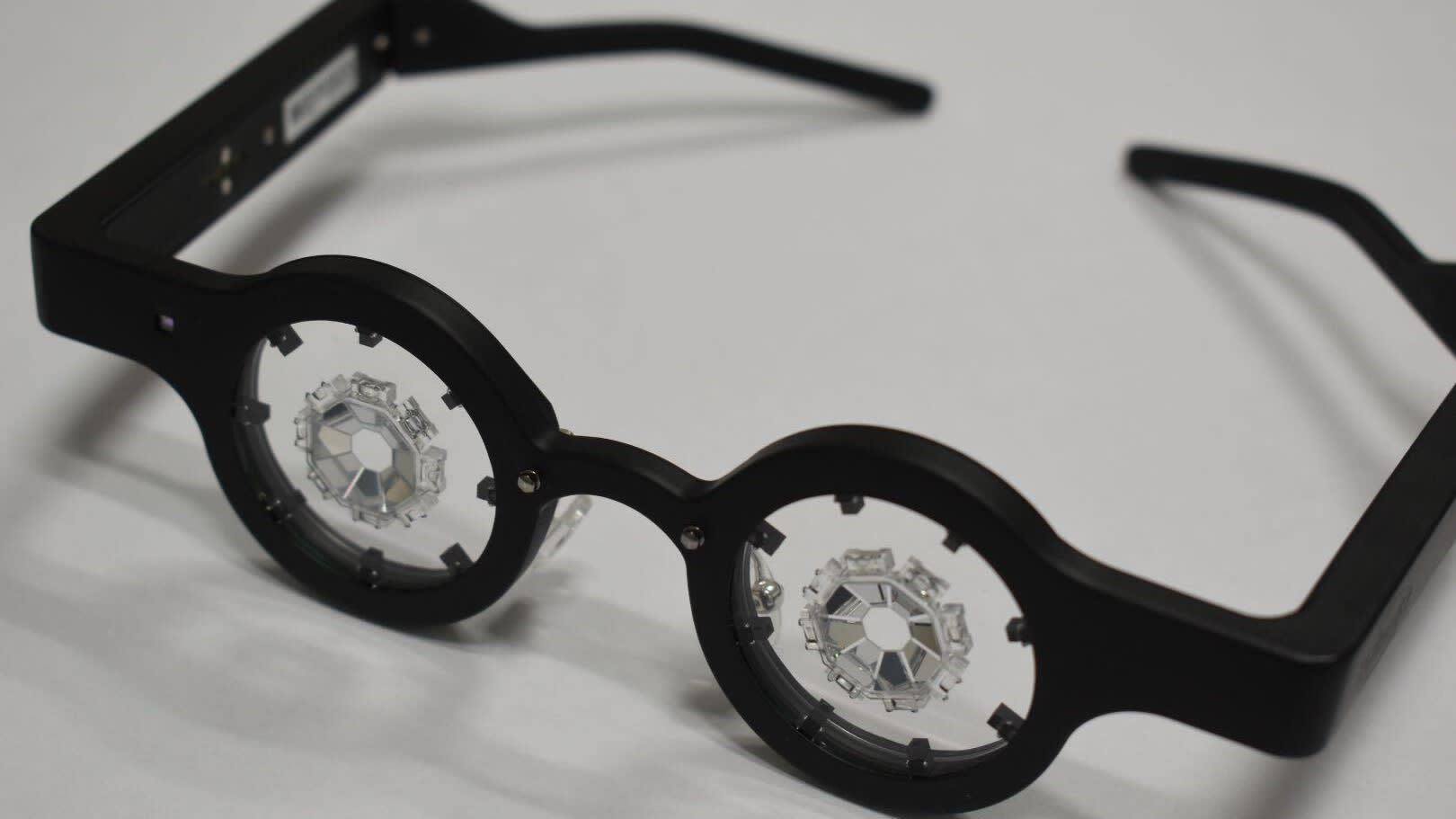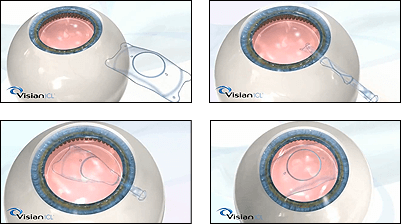TOKYO -- Can a pair of unique spectacles banish nearsightedness without surgical intervention? Japan's Kubota Pharmaceutical Holdings says its wearable device can do just that, and it plans to start releasing the product in Asia, where many people grapple with myopia.
The device, which the company calls Kubota Glasses or smart glasses, is still being tested. It projects an image from the lens of the unit onto the wearer's retina to correct the refractive error that causes nearsightedness. Wearing the device 60 to 90 minutes a day corrects myopia according to the Japanese company.
Kubota Pharmaceutical has not disclosed additional details on how the device works. Through further clinical trials, it is trying to determine how long the effect lasts after the user wears the device, and how many days in total the user must wear the device to achieve a permanent correction for nearsightedness.
Myopia is often results from the cornea and the retina in the eye being too far apart. This inhibits the proper focusing of light as it enters the eye and causes distant objects to look blurry.
Asian are prone to nearsightedness. Of people aged 20 and under, 96% of South Koreans, 95% of Japanese, 87% of Hong Kongers, 85% of Taiwanese and 82% of Singaporeans are affected by the condition, according to Kubota.
To assess the device's effectiveness, Kubota is conducting clinical tests on about 25 people in the U.S. "We intend to sell it first in Asia, which has a high ratio of nearsighted people," said Ryo Kubota, the company's president.
The Tokyo-based company plans to begin selling the device in Asian markets, including Taiwan, Singapore, Hong Kong, Thailand and Malaysia, in the second half of the year. It is considering whether to offer it through local sales agents or online.
Kubota began clinical trials on the device last July after confirming the therapeutic effect of the mechanism using a desktop system. It is also developing a contact lens-type myopia correction device.
Kubota, which made its debut on the Tokyo Stock Exchange's Mothers market for startups in December 2016, develops drugs and devices for the treatment of vision problems.
https://asia.nikkei.com/Business/Health-Care/Myopia-correcting-smart-glasses-from-Japan-to-be-sold-in-Asia
This would be HUGE if it actualy works. Wearing that thing for 60-90 min a day and after a time you have permanently corrected your nearsightedness? Sign me up!
It looks kina weird tho:






